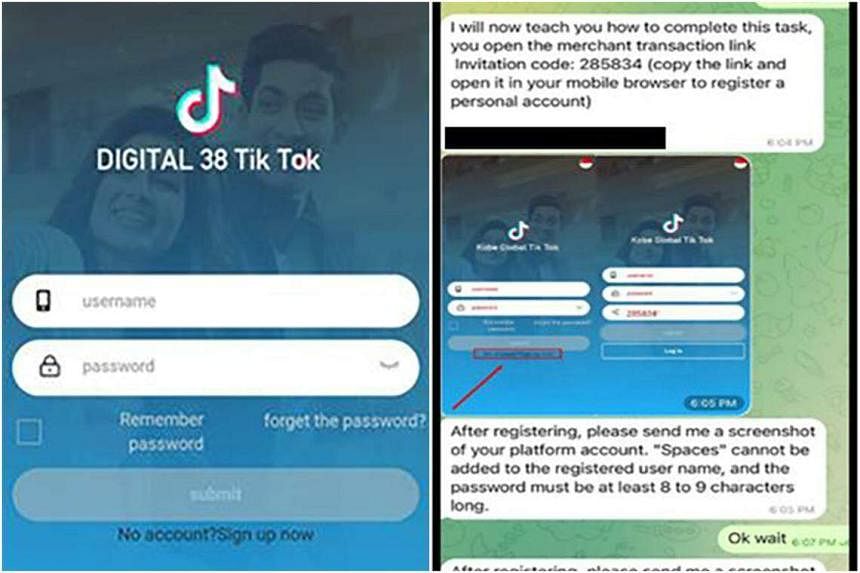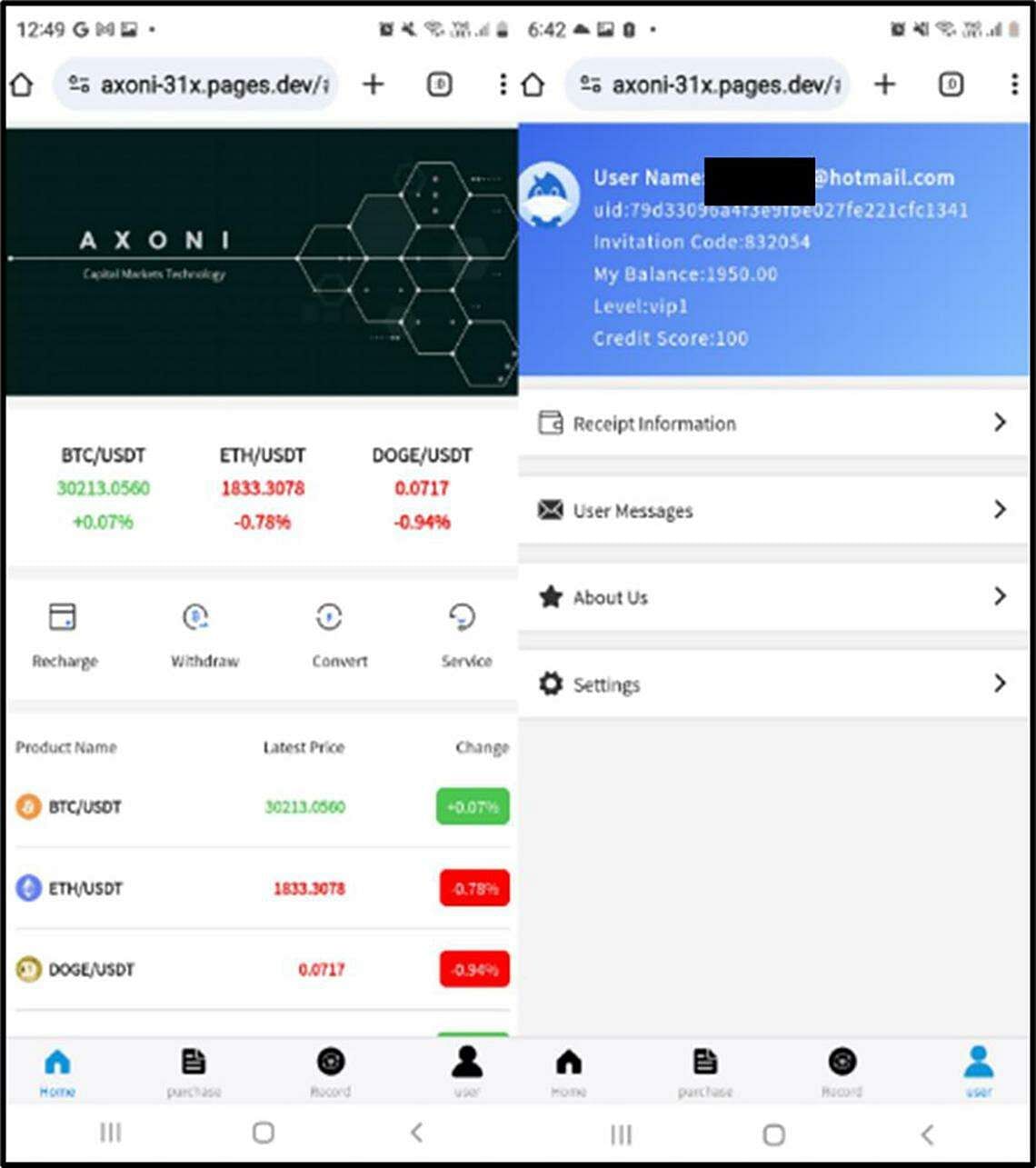STOMP it anytime, anywhere.
Download the new STOMP app today.

More than 3,066 victims have fallen prey to job scams with losses amounting to at least $45.7 million between Oct 1, 2023, and Jan 31, the police said in a statement.
There are three common job scam variants in which scammers approach victims through dating apps or social media under the pretext of befriending or offering jobs before enticing them with commissions to perform tasks.
In the scams involving social media boosting, victims would be added to WhatsApp or Telegram chat groups and promised profitable and easy online jobs.
Scammers would claim to represent TikTok or other online communications and marketing companies to give the false impression that the job offers were authentic.
Victims would then be given tasks involving the generation of social media traction such as following, liking or commenting on accounts and/or posts on TikTok or Instagram, liking and subscribing to YouTube channels and videos, liking songs on Spotify or liking posts on Trip.com.
Victims would receive a small commission after completing the 'tasks'.
Convinced they could earn more, scammers would then introduce more 'rewarding tasks' and in some cases, provide victims with fake employment contracts.
In another scam variant, victims would receive WhatsApp or Telegram messages offering small commissions for the completion of surveys.
After victims were convinced they could earn money easily, scammers would introduce them to 'advanced tasks'.
They would be asked to reach out to other WhatsApp or Telegram contacts or join chat groups where tasks such as social media boosting or the transfer of money for 'investment' would be discussed.
To perform these 'advanced tasks', victims would have to create accounts on scam websites and be instructed to transfer increasingly larger sums of money to bank accounts or crypto wallets provided by scammers.
Victims would only realise they had been scammed when their website account showed a negative account balance and were told to pay additional funds to 'upgrade their accounts' or when they were unable to withdraw their 'earnings'.
For those scammed in a variant involving affiliate marketing, scammers would approach and befriend victims on messaging platforms, dating apps or social media platforms such as Facebook and Instagram.
Those targeted were offered a commission to help boost products on e-commerce platforms.
They would then be referred to other WhatsApp or Telegram users, who instructed them to take screenshots of certain products on e-commerce websites and make payments to specified bank accounts or PayNow numbers before they could get their refunds and commissions.
This process would be repeated several times, beginning with low-cost items, before progressing to increasingly expensive items.

While victims would initially receive both refunds and commissions, they would eventually realise that they had been scammed when scammers top 'paying' and become uncontactable.
Police advise members of the public that jobs entailing the generation of social media traction, affiliate marketing, or peer-to-peer transfer of money or cryptocurrency may be scams.

People should enable privacy settings on messaging platforms such as WhatsApp and Telegram so only known contacts can add them to chat groups.
They should also be wary of being added to chat groups or channels offering investment or job opportunities.
Members of the public are also encouraged to download the ScamShield app on their mobile devices.
The authenticity of job offers should be verified through official channels and people should avoid clicking on URLs or downloading mobile applications from unknown sources.
They should also inform the authorities, as well as family and friends, about scams and report the scammers or chat groups to WhatsApp or Telegram.
Those with information relating to such crimes can call the police hotline at 1800-255-0000 or visit www.police.gov.sg/iwitness.
For more information on scams, go to www.scamalert.sg or call the Anti-Scam Helpline at 1800-722-6688.
Click through the gallery above for more screenshots.